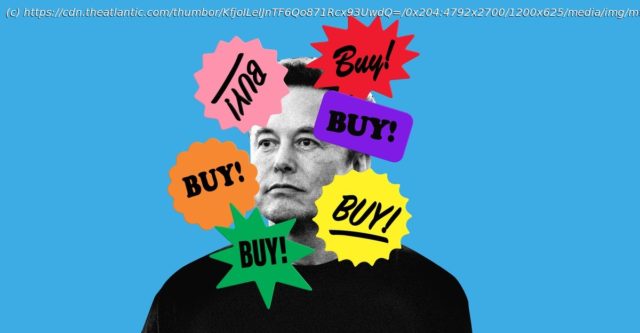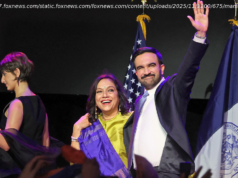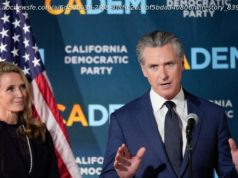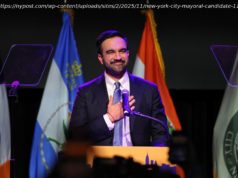The new owner says he hates advertising. That’s a problem because it provides 90 percent of his social-media platform’s revenue.
Hours before Elon Musk closed his deal to buy Twitter, he published an open letter to advertisers. Musk knew that big companies in particular were anxious about his plans to dramatically reduce the amount of content moderation on the site. They saw this as a potential threat to what advertisers call “brand safety,” because it would make it more likely that their ads would end up next to deceptive or offensive content. In his letter, Musk acknowledged those concerns, saying that he wanted Twitter to become “the most respected advertising platform in the world,” and that he understood that the site could not become “a free-for-all hellscape.”
Then, over the next two weeks, he almost single-handedly made advertisers’ greatest worries come true.
Musk tweeted out a link to a right-wing conspiracy theory about Paul Pelosi, the husband of the House speaker, and posted a photograph of a Wehrmacht soldier with a joke about how messaging technology has improved. He told independent voters they should vote Republican. And he complained that advertisers were boycotting the site because of activist groups’ agitation, and said that if they did not reverse course, he would subject them to a “thermonuclear name and shame.”
While all that was happening, Musk also hurriedly rolled out his revision of Twitter’s blue-check system. Previously, a blue check meant that you were in some way a notable figure whose identity had been verified. The new system allowed anyone, including totally new accounts, to get a blue check by paying $8 a month and subscribing to what’s called Twitter Blue. This predictably led to free-form chaos on the site. Someone created a George W. Bush account and joked about being nostalgic for killing Iraqis; an account pretending to be the drugmaker Eli Lilly said insulin would be free; and a fake Pepsi account said simply that Coke was better.
Many of these tweets, it has to be said, were clever bits of satire or agitprop—when Eli Lilly had to make clear that the insulin tweet was false, it effectively had to say that it was still charging for insulin. But this, on top of Musk’s own tweets, represented precisely the kind of turmoil and messiness that corporate brand managers hate. If this was Musk’s idea of protecting brand safety, advertisers had to wonder, what would brand danger look like? By the end of last week, two of the world’s biggest ad agencies, IPG and Omnicom, had recommended that their clients pause ad spending on the site, something that big companies such as Audi, General Mills, and General Motors had already done.






